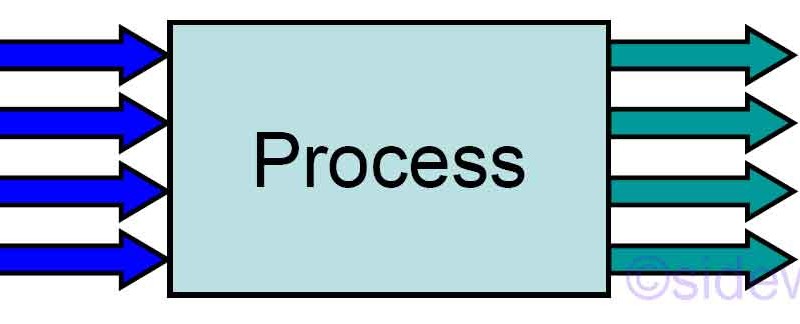A human resources manager recently asked me for a general list of reasons why a mediation might not settle. While part of me wanted to question the idea of settlement as the goal of mediation (see Alan Gross’s excellent piece ‘Agreement Not the Gold Standard for Mediation – http://www.mediate.com/articles/GrossA3.cfm ) most of me thought this was an interesting request. Why shouldn’t the client ask for a précis of risks before making a purchase? These days no self-respecting surgeon would have a patient under the scalpel without setting out the risks.
So I gave it a go. Here is my first attempt.
“In no particular order:
· one or other party thinks they can do better in court (or the equivalent)
· one party is prepared to compromise and the other isn’t (this tends to make the first party regret their concessions and withdraw them, leading to a hardening of attitudes)
· one or both parties are concerned about setting a precedent that they believe will make them look weak to others
· one or both parties have insulted the other, either before the mediation or in it. It is hard to recover when one person causes the other to lose face
· one party has apologised and this has not been accepted
· ‘bad faith’ – the strong belief that the other person is not to be trusted (this precludes effective negotiation because their plain words cannot be relied on)
· one or both parties’ sense of fairness has been offended
I also wonder, and this is pure speculation, if mediation suits some personalities more than others. It requires a degree of reflection. A typical mediator question might ask one person to speculate about what the other might be thinking, or how their actions or words might have affected the other. Some people just hate this. I believe this is why some mediators have developed a more evaluative technique in commercial settings, so that they effectively tell people their prediction of the outcome in litigation. The parties can then negotiate ‘in the shadow of the law’ without having to consider the perspective of the other.”
A few days later I attended a group supervision session with some colleagues and the talk turned again to cases that don’t settle. I shared my musings and got two further responses. The first is from Jeremy Scuse:
“· where the spouse/partner of an employee is not (or will not enter) in the mediation, yet is a huge influence on the employee and their decisions out of it. A recent example where an individual gave their word to affect an important action immediately, met their spouse in the pub and emailed the colleague in the morning saying on “mature reflection” they weren’t going to do it! Exit trust.
· where one or both parties are so angry, nothing short of blood will satisfy, and try as they might they simply cannot “negotiate” with the other. This is one of the areas where “conflict coaching” may help the individual(s) to move to a state of mind where they can engage in the process and gain some benefit.”
The second comes from Ewan Malcolm:
“· a party feels threatened, bullied or abused
· the views and feelings of significant people not in the mediation room influence a party against settlement
· for whatever reason, time runs out in the mediation
· a party believes or is advised that there is not enough information available on which to base a decision to settle
· a party feels too tired or upset to make a decision to settle”
Looking back on these, two thoughts occur to me. The first is how little we control. I know it doesn’t always, but visiting that foreign land called “other people’s conflict” ought to inject a dose of humility into mediators. In experimental terms, when we don’t control inputs it becomes impossible accurately to compare outputs. The inputs are the clients who come into the system, affected by any of the factors listed above and more besides. And the outputs may be settlements, but they may also be flashes of insight, moments of calm or even outbursts of towering rage in which a person gives voice to the weight of injustice that drove them into conflict.
The second thought is the recollection of a session run by Ken Cloke. At one point he said something like, “I don’t believe in unresolvable conflict anymore: it’s just that I might not be the right guy.” In tension with all I have said above is the equal and opposite risk of placing the blame for our failures on the clients. Sometimes we just don’t “crack the code”. We have off-days.
So, in the interests of balance, I need to add a few more reasons why a case may not settle:
· the mediator clashes with one of the clients
· the mediator misses a crucial cue and spends too much time on something unimportant
· the mediator dislikes conflict and attempts to sweep it under the carpet
· the mediator spends too much time/insufficient time in private session
· the room is too cold/hot/poorly lit/badly laid out/noisy
· the mediator is having a bad day
· the mediator isn’t sufficiently experienced in the subject matter (and lacks the humility to bring in someone else)
· the mediator gives up too soon
I could go on but you get the picture. Let’s not “pathologise” our clients by making their deficits the only variables. Let’s understand that all we can do is play our part, performing our role to the best of our ability. And, amazingly, mediations do settle. When the input is conflict and the output is resolution we know we have taken part in a pretty nice experiment, even if we don’t always know how it happened.
________________________
To make sure you do not miss out on regular updates from the Kluwer Mediation Blog, please subscribe here.




